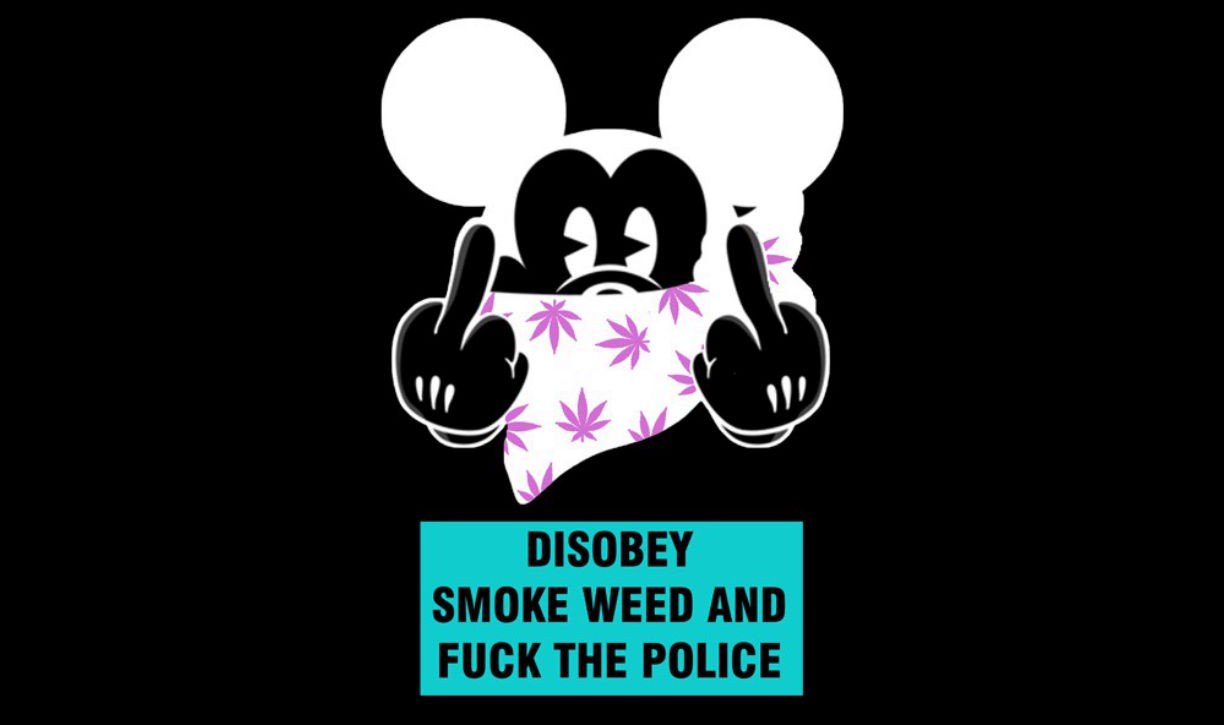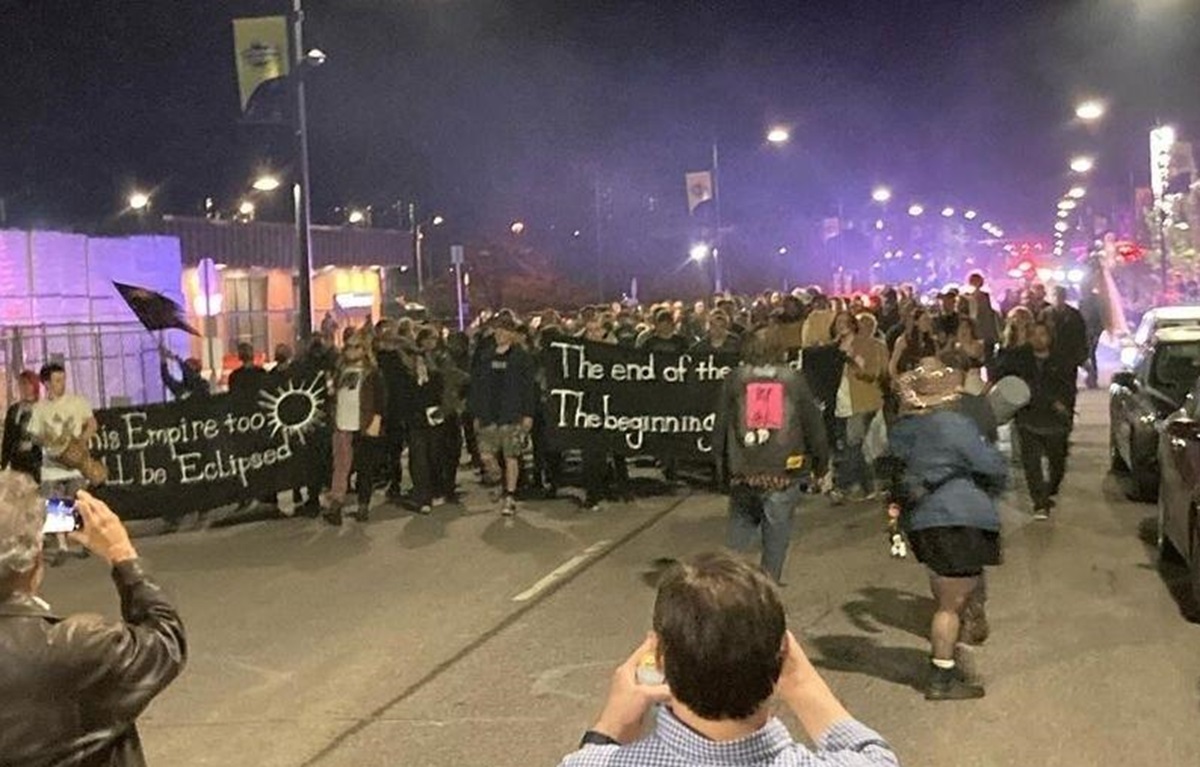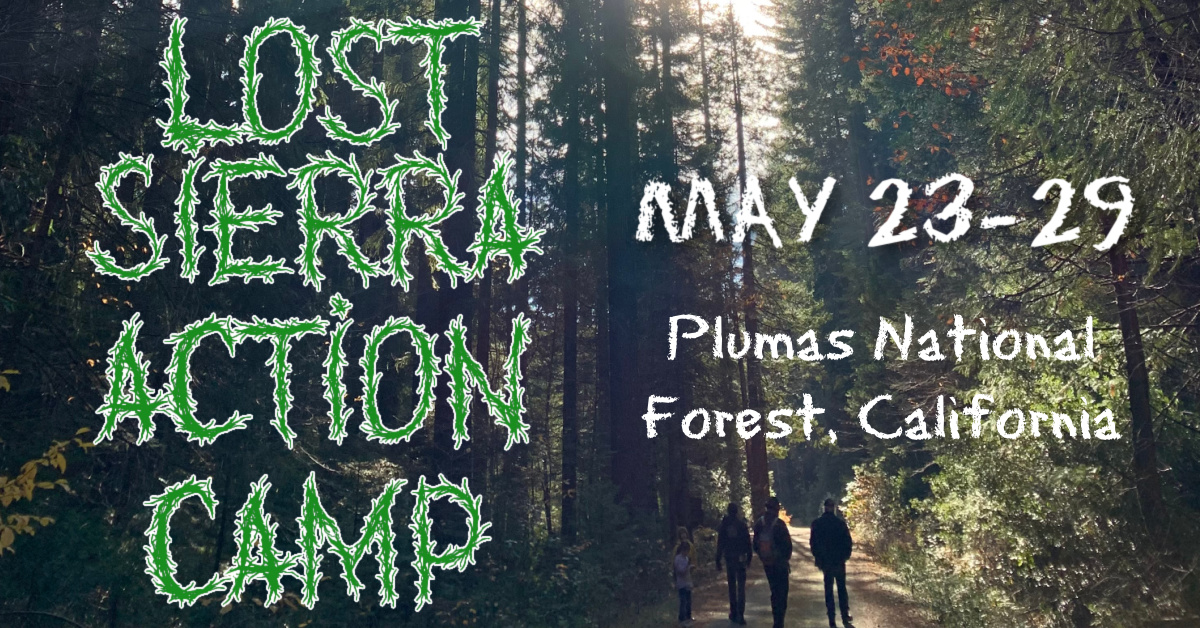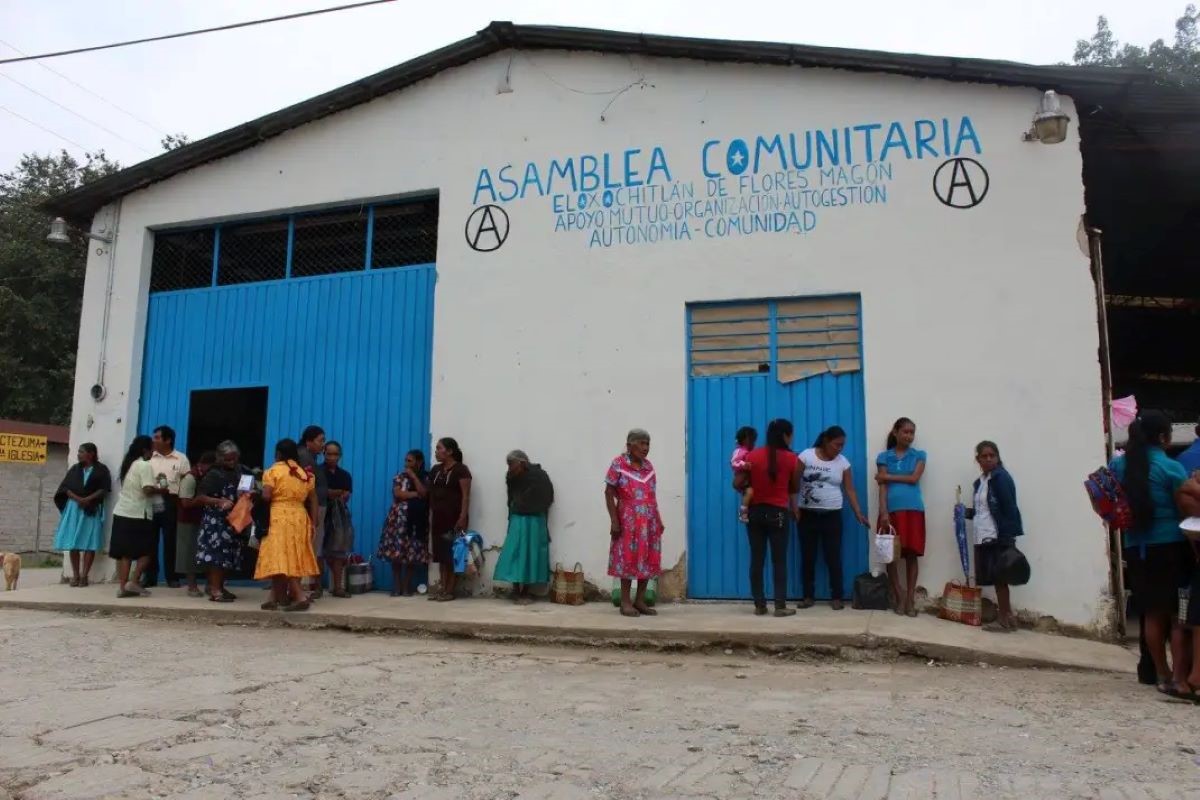Filed under: Canada, Capitalism, Incarceration, Lifestyle, The State

Cannabis culture was a thing before it was a national brand fronted by a couple of activists-turned-entrepreneurs. It wasn’t a single or unified thing, but rather a bunch of different cultures that looked different across generations, across provinces or regions, between urban and rural places, and depending on who was smoking it. What weed means to you is probably not the same as what it means to me, or to your parents, or to another pot smoker who you don’t know.
We’re not all lazy stoners, not all activists, not all hippies or skaters or college bros. We don’t all love our relationship with marijuana but some of us do. Some of us are involved in the industry and some of us are just smokers. Some of us do it to manage pain, to chill out or to cope with a fucked up world. Some of us just do it for fun. But there are certain things that, until recently, we all had in common. The biggest one is that until recently we were all, to some extent, involved in something that was illegal.
Those of us who are used to doing illegal things know how to sneak around a bit. We know how to make a connection without advertising. We know how to learn about something without going to school or even to the public library, sometimes even without going online. And we all know that you can’t 100% trust the police or the government. We know that just because something is illegal doesn’t mean it’s wrong and that just because somebody got in trouble doesn’t mean they did something bad. We know that the cops are, at least sometimes, our enemies and not our friends. We have, at least once, seen those blue and red flashing lights and felt anxiety, hatred or fear rather than relief and safety. This makes even those of us who are otherwise pretty well off in society different from other white, middle-class folks, many of whom naively assume that the government has our best interests at heart and that the cops are there to keep us all safer.
As an anarchist, I think these are useful things to know and feel because I think that the government is unjust and not to be trusted. I don’t want people getting caught or going to jail, but I do want less people to feel good when they see a cop on the corner. I want people to at least on some level understand that police and laws are not inherently good things. For that reason, as well as for a multitude of personal reasons, I have always felt a certain sense of affinity and love for stoners. I don’t think that weed is always good for all people and I have met a lot of smokers who were assholes, but anybody who has ever made a drug deal knows on some level not to trust the police, and that’s a good thing.
Now they’re going to legalize the plant and the product, and all of this is about to change. Most of the stoners I know think that this is a good thing, and I understand why. Nobody wants to go to jail or deal with months or years of court and lawyer bullshit just because they wanted to get high or make a few dollars. Getting arrested and going to jail are terrible things – they can ruin lives, tear people away from their family and friends, cost a lot of time and money and really fuck people over.
And yet, I think legalization is going to ruin weed. Stoner culture is illegal culture, and you really can’t separate the two. There’s a reason I tend to get along better with pot smokers – it’s because they tend to be a fairly skeptical bunch with a libertarian streak and a general distrust for authority. People who drink alcohol also like to get ‘high’ in a sense, but they don’t share those traits. That is largely because alcohol is not illegal, subcultural or underground. It’s just normal. If weed becomes normal it will be less cool, less edgy, less inclined to attract people who are looking for something a little different in this world. And that’s a bad thing for anybody who prefers a dirty living room full of chilled out high people to a slick, hopping night club on a Saturday night.
“In Holland, the coffee-shop culture is dead. It’s over and out. That culture is gone. It’s like booze now. We exist because we know how to talk to the police people and the tax department. It’s business.”
– Henk de Vries, Dutch cannabis entrepreneur.
What’s more, poor, racialized and otherwise already-fucked-over smokers and dealers are going to keep right on getting fucked. Sure, there are a few entrepreneurial rich and mostly white folks who are looking to strike it rich by cashing in their grow op skills to start a massive, legal licensed operation in a factory. But that’s not most people who are currently involved in black-market weed. Most people who are growing or selling are doing it because it’s illegal – because they can’t handle or just don’t want to work a straight job, because they can’t make enough money on minimum wage, or because they already have a record and can’t find work. These people are not going to become legal weed entrepreneurs. They’re either going to be left totally stranded, or they’re going to get involved in other black market enterprises, often things that are way more shitty, violent and harmful than selling a plant that gets you high and/or kills your pain. An industry that used to be a way for broke people to supplement their income, or unemployable people to make a few dollars, will be transformed into yet another cash grab for big pharma and a lucky few capitalists. Think about the person or people who sold you your bud over the years, and I’ll wager most of you know that this is true.
A lot of those small dealers and growers are already being edged out by so-called medical marijuana and by grey-market open dispensaries that can afford to break the current laws to make a buck. Tolerant police forces and local governments, combined with a sense that legalization is coming soon, has already transformed a large part of pot culture into an ultra-capitalist, ultra-specialized culture populated by entrepreneurs and big corporations.
Open dispensaries that defy the law could maybe be cool if they were local operations, supporting the communities that they took cash from. In a few places, this is what’s happening. But the majority of dispensaries are big capitalists with big money, opening now in hopes that they’ll be the ones to cash in on what is already Canada’s largest agricultural product when it becomes legal and legitimate. There has always been big money in weed, from import-export markets in the 1970s, to organized crime rackets, to huge farm operations on the West Coast. But there has also always been room for small-timers because those who were big could not afford to flaunt it, to advertise, to openly edge out their competition, because small-scale operations had the advantage of less police scrutiny. Now the biggest of these capitalists are making their bid to control the market before it becomes legal, and most of the dispensaries are their strategy. It looks like some of them are fighting a losing battle, because the federal government has announced an extremely regulated and controlled path to legalization that may well kill off some of these big capitalists along with your dealer on the corner. Let’s not mourn them or act like their rule would have been any better than the government’s.
High Times used to be a sketchy, alternative publication for hippies and those on the margins. Now its biggest section is its business section. There are conventions, advertisements and product placements. There are storefronts and factories. Potency and variety of product availability has increased drastically under this regime, but at what cost? New extracts will get you way more high with way less product than smoking a joint would, but they are made either in expensive corporate labs or at great risk to personal safety. Instead of just buying “weed” and hoping that it’s “good” we can now go to a store and choose from a variety of strains guaranteed to provide a variety of effects. Some dispensaries look like old-school pharmacies, while others look like candy shops.
All of this is fun, convenient and safer for some of us, to be sure, but it comes at a great cost. We are taking something that was in our own hands or the hands of our communities, something that we could and did produce in basements, back yards and friends’ closets, and handing it over to big corporations and eventually to the government. This is one of the last remaining things that we use regularly that we have a decent chance of either making ourselves, or actually knowing and having a relationship with the person who made it and/or brought it to us. For most of us, we can’t say that about our food, clothing, cars, alcohol, really anything at all. And many of us are willingly giving away this last little tiny piece of relative autonomy in favour of a weed shop with as much choice as the breakfast cereal aisle.
The private dispensaries may or may not survive the Canadian government’s legalization plan. They might survive in some provinces or regions and not in others. But either way, let’s all consider what they really brought us and whether it is really and truly worth the loss. We were already expanding our knowledge of this plant on our own in secret. We could have experimented more, shared our skills and knowledge like we always did, and made it great on our own. We could have shared it with our ill or injured friends in need of medicine and our bored friends in need of a good high. We did not need big corporations and the government to take it from us, but many of us knowingly and willingly gave it all away.
Pot activists – the Marc and Jodie Emerys of the world – are to blame. They acted like it was for the people, but many of them are cashing in now (or pissed off that their plans to cash in have been foiled by a tough-on-crime legalization plan). They have won and now they are scrambling to make sure they are among the chosen few selected to make some money in this new economy. Some of them knew all along that this is how things would end up, and some of them were likely misguided or just didn’t stop to think for long enough, but they’re all to blame.
People who didn’t differentiate between decriminalization or looser drug laws and legalization for the purpose of control and regulation are to blame for taking a “take what we can get” approach without stopping for a minute to see what’s plainly obvious – that the government only wants to legalize this so that they can control it better, and that it’s not a good thing if we are more controlled. A lot of people who supported decriminalization/legalization because they were tired of getting busted are about to wake up to the fact that the industry that they lived and worked in is on its way out, replaced by an LCBO-like weed shop or a Shoppers Drug Market-like private dispensary, and they’re out of a job.
Large-scale capitalist dealers, paraphernalia and cultivation supply companies, and ambitious large growers are to blame for seeing a window into a world where they could make way more money than they ever could in an illegal economy and jumping right on in, throwing all the smaller players under the bus.
Big pharma and now big cultivation is to blame for cashing in on the demand for medical marijuana, but patients and activists are to blame for not seeing that one coming. It seems pretty obvious that you can’t trust a pharmaceutical company.
Trudeau supporters and voters, especially the potheads and youth who flocked to him because of his pro-legalization agenda, are to blame for begging the government to regulate, control and surveil us even more than they already do.
And of course, the government and the huge licensed producers who are now going to make a killing on this “new” industry are the most to blame for all of this. But a lot of us helped them do it, begged them to do it, are now celebrating they have done it. And fuck that.
***
What now?
Honestly, I think we’re pretty screwed. There might have been a good chance of stopping this a few years ago, but now that the dispensaries are up and running, the capitalists are exalting the fact that Canada’s largest agricultural product is now legitimate, and the government has just announced a legalization plan, it’s probably too late to go back to the underground from whence we came. But I do have a few ideas to take away from all of this.
1. Stop supporting it. Stop being a legalization advocate. Stop patting pot activists and Justin Trudeau on the back for this. Be angry.
2. Refuse to celebrate this false victory. Be the buzz-kill in your circle of friends when they want to throw a party for legal weed.
3. If you can, keep supporting black market weed as long as it exists and as long as you can find it. Keep your connections with others who, for whatever reason, chose to or had to live a little bit outside of the law.
4. Break other laws. Buy psychedelic mushrooms, unpasteurized milk, and contraband tobacco. Scam, steal and cheat the system whenever you can. Put up posters and graffiti. Protest, riot, revolt. Refuse to be controlled.
4. Remember this the next time you’re about to ask the government for something. They will do what is best for their own control over your life.
5. Remember this the next time you see somebody trying to sell you convenience at the expense of autonomy. Don’t confuse consumer choice for genuine freedom.
6. If legalization means that you now never find yourself in conflict with the law or authority because pot laws were the only laws you had to break, consider how wealth or white privilege are giving you that unfair advantage. Side with the poor, the non-white, and the illegal, not the government and corporations.





